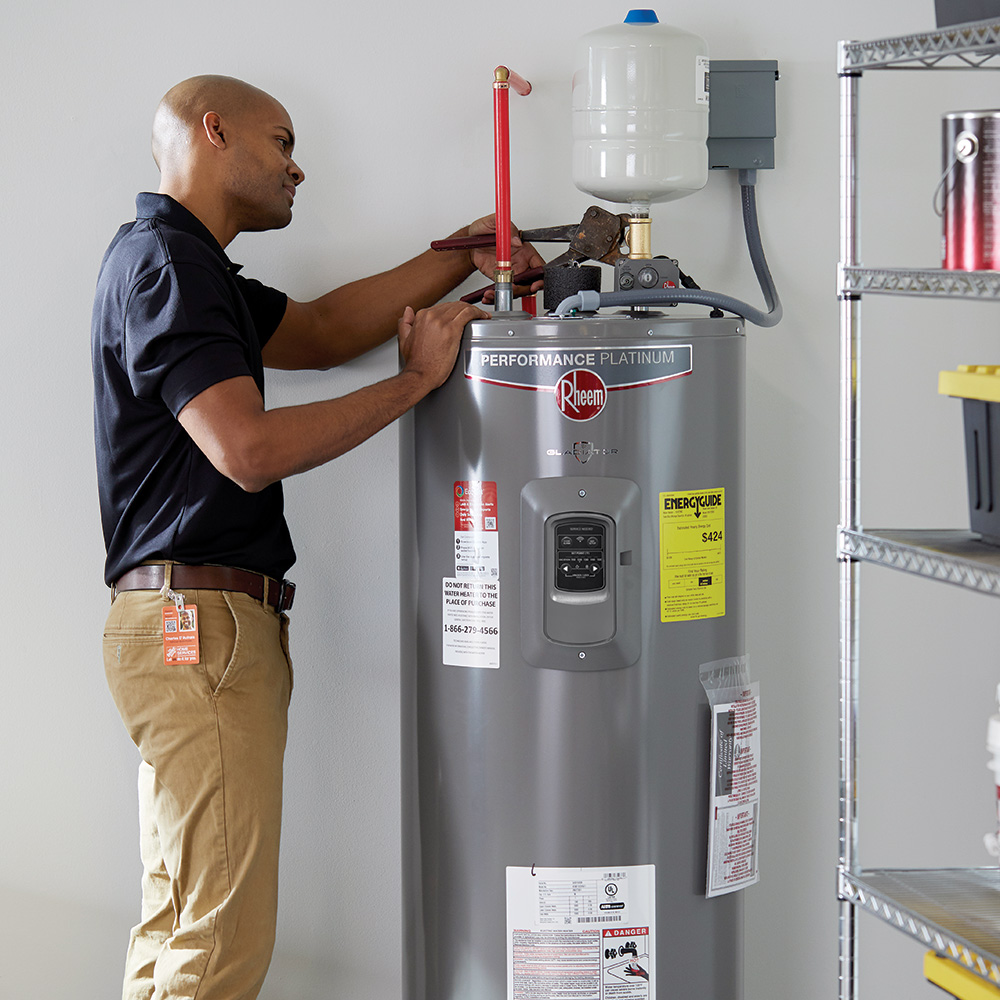Identifying And Solving Common Water Heater Issues
Identifying And Solving Common Water Heater Issues
Blog Article
The publisher is making several good annotation about Common Problems with Your Home Water Heater overall in this content beneath.

Envision beginning your day without your regular hot shower. That already establishes a poor tone for the remainder of your day.
Every home requires a trustworthy water heater, yet only a few know just how to handle one. One very easy way to keep your hot water heater in leading shape is to look for mistakes frequently and also repair them as soon as they appear.
Keep in mind to switch off your hot water heater prior to sniffing around for faults. These are the water heater faults you are probably to come across.
Water also warm or also cool
Every hot water heater has a thermostat that establishes just how warm the water obtains. If the water entering into your home is as well hot despite setting a convenient optimum temperature level, your thermostat may be defective.
On the other hand, too cold water might result from a stopped working thermostat, a broken circuit, or inappropriate gas circulation. For example, if you use a gas hot water heater with a broken pilot light, you would certainly get cold water, even if the thermostat is in best problem. For electric heating units, a blown fuse might be the wrongdoer.
Not enough hot water
Hot water heater can be found in several sizes, depending on your hot water demands. If you run out of hot water before everybody has had a bath, your water heater is as well little for your family size. You ought to take into consideration mounting a bigger hot water heater storage tank or opting for a tankless hot water heater, which uses up less area as well as is extra resilient.
Weird noises
There go to the very least 5 type of noises you can hear from a hot water heater, however the most usual interpretation is that it's time for the water heater to retire.
First off, you must be familiar with the regular seems a water heater makes. An electrical heater might sound various from a gas-powered one.
Popping or banging audios typically suggest there is a slab of debris in your tanks, as well as it's time to cleanse it out. On the other hand, whistling or hissing noises might simply be your valves allowing some pressure off.
Water leaks
Leakages can come from pipes, water links, shutoffs, or in the worst-case scenario, the storage tank itself. With time, water will corrode the storage tank, as well as locate its escape. If this happens, you need to replace your water heater asap.
Nonetheless, prior to your change your entire tank, be sure that all pipes are in place and that each shutoff functions flawlessly. If you still require aid recognizing a leakage, call your plumber.
Rust-colored water
Rust-colored water indicates among your water heater components is corroded. It could be the anode pole, or the storage tank itself. Your plumber will be able to identify which it is.
Lukewarm water
Despite just how high you established the thermostat, you will not get any kind of hot water out of a heating system well past its prime. A hot water heater's performance may lower with time.
You will certainly likewise get warm water if your pipes have a cross connection. This suggests that when you turn on a tap, hot water from the heater flows in alongside normal, cold water. A cross link is easy to spot. If your warm water taps still pursue closing the hot water heater valves, you have a cross connection.
Discoloured Water
Corrosion is a significant cause of filthy or discoloured water. Deterioration within the water container or a stopping working anode rod might cause this discolouration. The anode pole secures the tank from rusting on the within and must be checked annual. Without a pole or an effectively functioning anode pole, the warm water rapidly wears away inside the tank. Contact an expert hot water heater technician to identify if changing the anode pole will certainly take care of the issue; otherwise, change your water heater.
Conclusion
Ideally, your water heater can last ten years before you need a modification. Nevertheless, after the 10-year mark, you may experience any of these faults much more regularly. At this point, you need to add a new hot water heater to your budget plan.
How To Troubleshoot 3 Common Water Heater Problems in Twin Cities
The Water Heater Is Leaking
A leaky cold water inlet valve A loose pipe fitting A leaky temperature and pressure relief valve A corroded anode rod A cracked tank Turn Off Your Water Heater:
Shut off your gas water heater by turning the gas valve on the unit to the “OFF” position. Shut off your electric water by switching its power off at your electrical panel. Look for a two-pole breaker labeled “water heater” and turn it to the “OFF” position. Move the ball valve connected to the water heater to be perpendicular to the piping at a 90° angle. Look for the Leak:
Depending on whether the water is coming from the tank's top or bottom, you’ll want to look for the leak in different locations.
If the leak comes from the top of the tank, carefully look for water escaping from the cold water inlet valve or loose pipe fittings. Rusted hot and cold water valves can have loose connections with the tank, with water leaking out of them.
https://mspplumbingheatingair.com/blog/how-to-troubleshoot-3-common-water-heater-problems
As a passionate reader about Common Problems with Your Home Water Heater, I thought sharing that piece of content was appropriate. Enjoyed reading our entry? Please share it. Help others discover it. Thanks a lot for your time. Visit us again soon.
Estimating Report this page